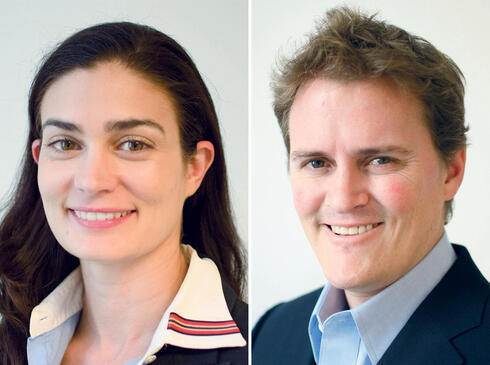
Analysis
Bad vibes from Goodreads: Amazon's book review platform sells AI-written falsely attributed books
If a book was written by AI and attributed to a reputable author can the real author ask that the fake book be removed from their profile? Welcome to the world of Amazon's Goodreads book review platform. The e-commerce giant, the undisputed ruler of the book market, has turned the platform into another brick in its monopoly wall, generating valuable data on 125 million users, while exposing them to reviews and fake products
Jane Friedman suddenly discovered that she had written five new books, they were for sale on Amazon and were part of her author profile on the Amazon-owned Goodreads book review platform. Among the new titles she wrote (and didn't know about) were "Promote to Prosper: Strategies to Skyrocket Your eBook Sales on Amazon” or the ‘catchy’ title: "A Step-by-Step Guide to Crafting Compelling eBooks, Building a Thriving Author Platform, and Maximizing Profitability."
From the moment she found out about their existence, Friedman began a Kafkaesque quest to convince Amazon and its review platform that the books were not hers and to demand that the association with her cease. "It falls on me, the author—the one with a reputation at stake—to get these misleading books removed from Amazon," she wrote in a blog post. Amazon was not communicative, and really what reason does it have to be? Friedman is just one author in a huge consumer machine, and she had no ownership of the books or exclusivity on her name. Fortunately for her, corporate opacity met virality, and after two days of the story making headlines, Amazon removed the books from both its website and Goodreads.
Apparently, this story contains everything that is discouraging about the meeting between technology, capitalism and the individual. Independent writers need to protect their copyrights and reputations against huge corporations; indifference of the technology companies towards fake products that harm consumers; and the monopolistic industries in which they operate that allows them to act in such a way. No wonder the case shook a hornet's nest. After the story broke, other authors have reported similar experiences of fake books, which they are convinced were written in their style using generative artificial intelligence. Most described similarly depressing accounts of Amazon's opacity, asking the e-commerce giant to take responsibility or at least do the bare minimum to ensure these synthetic imitations are treated like any other fake product on its platform.
At the same time readers, users and surfers started a relatively quiet campaign on TikTok, this time specifically against Goodreads. The book catalog platform, which is owned by Amazon, sells user reviews, collects data, and takes all possible control over what they defined as a "one-sided relationship". It is no coincidence that Friedman could not remove the fake books from her page on the platform, it is all structured so that she has no control over anything.
When talking about Amazon's dominance in the book market, it is customary to refer mainly to the online trading platform that eroded profit margins in the book industry, and led to the bankruptcy of publishers and bookstores in what is known as the "Amazon effect." Today it controls 68% of the digital book market, is responsible for half of all sales of the five largest book publishers in the world, and controls 80% of book distribution in the United States.
But Amazon's control is much deeper and more decentralized than that. It includes control of the best-selling e-book reader in the world - Kindle, it has an independent book label, and it controls the platform that rates, reviews and catalogs all this content.
Goodreads is a popular book catalog created in 2006 by Elizabeth Chandler, a journalist at the Los Angeles Times, and her partner Otis Chandler, whose family is one of the founders of the newspaper and who himself is a software developer. The two wanted to create a space for book lovers to catalog their books and share their opinions with a growing community. "The reviews are by far the most amazing thing about Goodreads," Otis, who remains the company's CEO, told The Atlantic in 2014. "There are people who just write amazing, poignant, deep and funny reviews of books and share them with the wider community."
Goodreads has features of a social network. No wonder it was called "Facebook with books" and "the Netflix of reading recommendations". Users post what books they have read or what books they are reading now or want to read, there are "followers" and "friends" and book clubs (or groups) for different and multiple genres. A vibrant community that takes part in about 20,000 book clubs. It also has all the negative characteristics of a social network: fake information, toxic discourse and the rise of online influencers. Over the years, it has established itself as the dominant space in its field, one that can build or destroy the careers of writers, cause them to be pulled from the shelf or their publication delayed, create new literary categories, and even cause writers to change the content of their works.
The platform grew rapidly. In 2013, when Amazon announced its purchase for $150 million, it already had 360 million titles cataloged by 16 million extremely active users. When the deal was announced, the players in the book market were not happy. The Authors Guild of America issued a statement that it was a "destructive act of vertical integration," and Guild President Scott Turow noted that it was an example of how modern Internet monopolies are created. "The key is to eliminate or absorb competitors before they pose a serious threat," he wrote. "With its 16 million subscribers, Goodreads could easily become a competing bookselling platform or direct readers to a site other than Amazon." Chandler said in response: "Change always brings uncertainty and causes nervousness, we completely understand that." To this day Amazon's ownership is not stated or implied anywhere visible on the platform.
Amazon had good reasons to buy the company. It had a relatively stable economic model based on publishing and licensing data. It managed to effectively turn the users into a targeted and well-segmented advertising product, and it included a very specific consumer demographic - about 80% of the site's users are women. Second, the website's terms of use clearly stated that users have no right to the data or the profile they create. With this power, Goodreads created a program called Review Partner, through which it still sells its user reviews to third parties, including publishers, newspapers, and Google Books, to display the reviews on their websites.
By 2012, Goodreads actually eclipsed Amazon in e-commerce conversion rate, the holy grail of online commerce. That year, Goodreads' conversion rate was 29%, compared to Amazon's 10%.
When Amazon acquired Goodreads, the initial concern of users and the author community was that Amazon would completely commercialize the reviews and ratings, damaging the platform model. Some wondered if the tech giant's control would change the way reviews are published or perhaps even censored, and there was a noticeable wave of user abandonment, but it was short-lived. It quickly became clear that Amazon had no interest in controlling the content, and that it had no reason to. The site expanded, the interest in it in the user communities grew, and Amazon watched all this happen while it invested limited resources in the platform, without any interest in changing or upgrading. This fact is clearly visible on the site itself, it still looks outdated and suffers from a clumsy interface.
After more than a decade it's hard to argue with Turow. Without significant investment from Amazon over the years, Goodreads has become a monster like no other. Today, the platform has about 3.5 billion cataloged books, 80 million reviews and 125 million users who contribute content to it at a high rate. It is 40 times larger than the second company in the field, LibraryThing, also owned by Amazon. And although we don't know exactly how Amazon uses all the data that the platform generates, we do know that in 2016 Amazon deepened the use of Goodreads data when it started scanning the platform for specific reviews in order to selectively promote e-books on its platform. At the end of 2022, it made another integration between the platforms, so that today the book ratings all appear on Amazon, and the platform data is used as training sets for language models for Amazon, based on algorithms that are similar to those behind products like ChatGPT.
The platform not only had an accompanying commercial force, but it completely changed the balance of power in the book industry, and was also a tool for political activism. Today there is a broad consensus that the platform shapes the way people read books, which books they read and literally sets the literary agenda. Examples have not been lacking over the years. In 2011, the British writer E.L. James attributed the success of her book "Fifty Shades of Grey" to Goodreads, and even on its back cover it was noted that it was a "Goodreads Choice Award Winner".
Last July, Elizabeth Gilbert, who wrote the bestseller "Eat, Pray, Love", announced that she would not for the time being publish her new book "The Snow Forest", which was supposed to hit the shelves in February 2024, after hundreds of users on the platform gave it a one-star rating - because the plot of the book takes place in Russia. "While Ukrainians are dying from Russian terrorists, famous authors are writing books about them and romanticizing these bastards," claimed one critic, although he had never read the book. The book page, since the fiasco, has been removed.
The platform has never been updated to deal with fake products and reviews, even though Amazon knows a thing or two about that and the importance of an authentic consumer space. In any case, it generates value for Amazon. The site leads in converting surfers to buyers, allows Amazon creative uses of data, and attracts many advertisers who see it, and rightly so, as a space for a target audience that is organized around a defined area of interest. Goodreads has seemingly broken the balance of power in the book industry, replacing the "intellectual" gatekeepers with the wisdom of the masses, but that hasn't stopped the giant corporation from converting the new intellectual halls into tradable data.
First published: 09:36, 21.08.23














